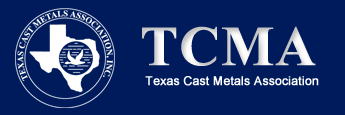|
|
|
| 'Inside the
TCMA' featured Article |
|
2022 TCMA In the News - Chairman Comments |
|
TCMA | September 2022 |
|
|
Summer is ending, kids are getting back
to school, and football talk is in the air. As we are now getting close
to ending 3rd quarter 2022, and we find that business is strong, most
materials are available through higher priced, and mid-term elections
are just around the corner.
INFRASTRUCTURE
The $1.2 trillion H.R.3684 - Infrastructure Investment and Jobs
Act passed with bipartisan support in late 2021. Now in full swing, this
bill provides new funding for infrastructure projects including; roads,
bridges, and major projects, passenger and freight rail, highway and
pedestrian safety, public transit, broadband, ports and waterways,
airports, water infrastructure, power and grid reliability and
resiliency (including funding for coastal resiliency, ecosystem
restoration, and weatherization), clean school buses and ferries,
electric vehicle charging, addressing legacy pollution by cleaning up
Brownfield and Superfund sites and reclaiming abandoned mines, and
western water infrastructure. With this new boost in funding, it is no
shock that foundries producing water works and infrastructure castings
are enjoying robust business.
RESHORING
The Reshoring Initiative forecasts that 350,000 new U.S.
jobs will be created in 2022. There has been a pronounced increase in
reshoring activities rising from the effect of domestic businesses
filling the gaps in their supply chains for essential products. Most if
not all Texas foundries are enjoying robust business and strong
backlogs. However, this success is paired with the continuing and
growing frustration of attracting and keeping all levels of employees,
most noticeably in the skilled trades and general labor/finishing areas.
I often hear, ‘business is good, but it would be better if I could
figure out how to get more castings out the back door’.
If domestic firms and foreign direct investment will combine to create an
additional 350,000 jobs in 2022, who is actually going to do the work?
OCEAN SHIPPING
The Ocean Shipping Reform Act was recently signed into law by
President Biden - 6/16/22. The AFS-backed bill boosts the investigatory
authority of the Federal Maritime Commission (FMC), allowing it to probe
ocean common carriers’ business practices, including unreasonable
demurrage and other charges which have skyrocketed throughout the
pandemic. FMC will also receive new enforcement powers. TCMA and AFS
members, as well as their suppliers and customers, have faced supply
chain disruptions and congestion at U.S. ports, as well as surging
shipping rates. Passage of this bill was a priority issue emphasized in
AFS letters to Congress and during congressional visits at the
Government Affairs Fly-In this year.
OSHA
At our last meeting we had talked about OSHA’s plan to increase the number
of inspectors nationally and a new focus on heat stress, but what does
this actually mean. The goal of this National Emphasis Program (NEP -
Directive Number CPL 03-00-024) is to reduce or eliminate worker
exposures to heat-related hazards that result in illnesses, injuries,
and deaths, by targeting industries and worksites, including worksites
with radiant heat sources, where employees are exposed to heat related
hazards and have not been provided adequate protection that includes
cool water, rest, cool areas, training, and acclimatization. These
mitigation strategies are key in controlling the health hazards
associated with heat exposures. OSHA’s Compliance Safety and Health
Officers are being instructed that they should inquire during
inspections regarding the existence of any heat-related hazard
prevention programs on heat priority days. A heat priority day occurs
when the heat index for the day is expected to be 80°F or more. We know
that Texas summers are hot so our focus should continue to be to
“provided adequate protection that includes cool water, rest, cool
areas, training, and acclimatization”.
NOVEMBER ELECTIONS
In the Senate; Thirty-five of the 100 seats in the Senate will be up for
election, including all 34 Class 3 seats. A special election is being
held to fill a vacancy from another Senate class. As senators serve
six-year terms, the last regularly scheduled elections for Class 3
senators were held in 2016. The winners of the United States Senate
elections will be sworn in on January 3, 2023, for the 118th Congress.
In the House of Representative Elections; All 435 voting seats in the
House of Representatives will be up for election. Fifty-one
representatives and one non-voting delegate (32 Democrats, 20
Republicans) have announced that they will be retiring. The incumbents
in these races were determined in the 2020 House of Representatives
elections and subsequent special elections. As these elections will be
the first conducted after the post-2020 census redistricting, several
districts lack an incumbent or have multiple incumbents.
Here at home in Texas:
The U.S. will hold its midterm elections on Nov.
8. In Texas, voters will elect officials for seven statewide seats —
governor, lieutenant governor, attorney general, land commissioner,
agriculture commissioner, comptroller and one of three seats on the
Railroad Commission. In addition, voters will also elect officials for
district-based congressional and legislative offices, the State Board of
Education and judicial seats.
|
• |
U.S. House: All 38 seats; Texas gained
two seats in the House, as determined by population growth in
the 2020 census |
|
• |
State Senate: All 31 seats |
|
• |
State House: All 150 seats
|
|
• |
Governor: incumbent Greg Abbott (R), Beto O’Rourke (D) |
|
• |
Attorney General: incumbent Ken Paxton
(R), Rochelle Garza (D |
Make
sure to be heard at the ballot box in November …. Get out and
vote!!!Looking forward to seeing you at our September 23rd meeting.
Brett Morehead
Chairman |
|
